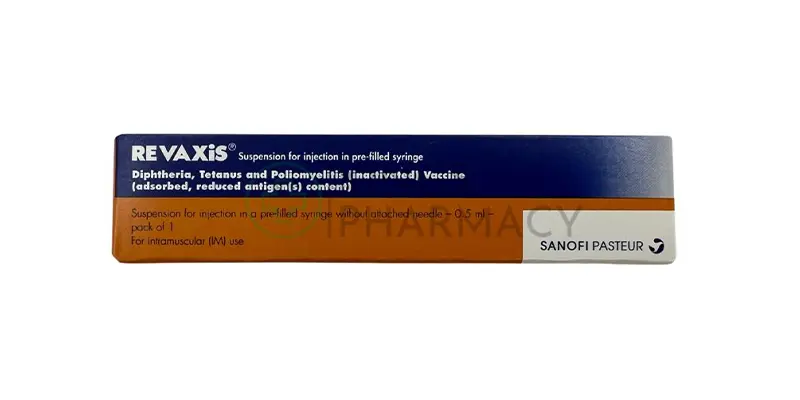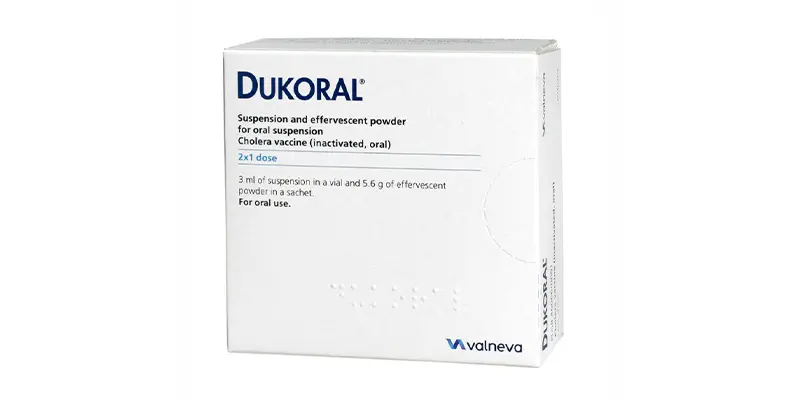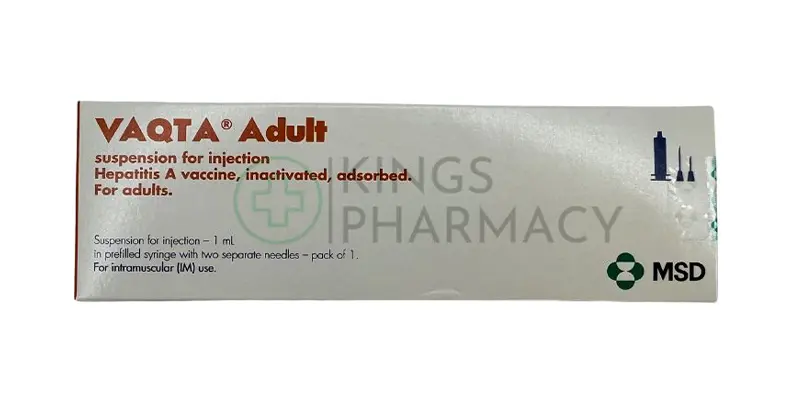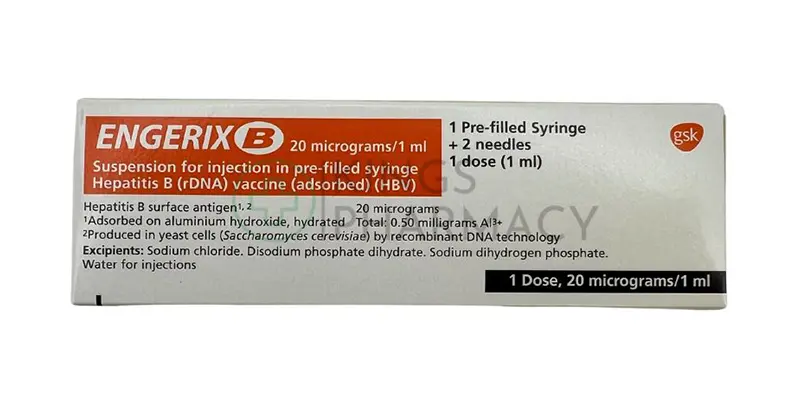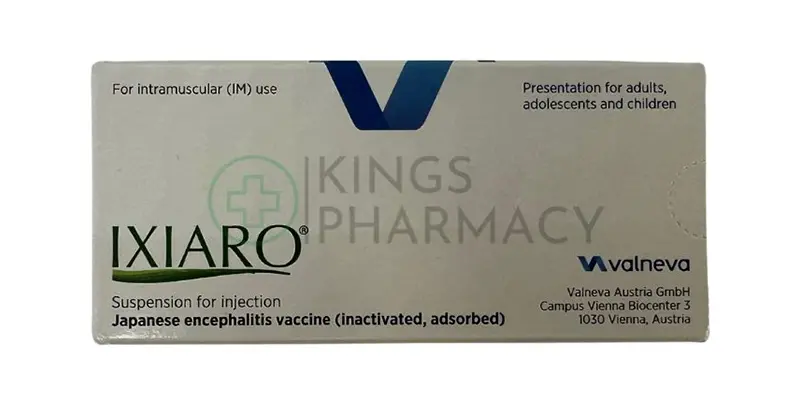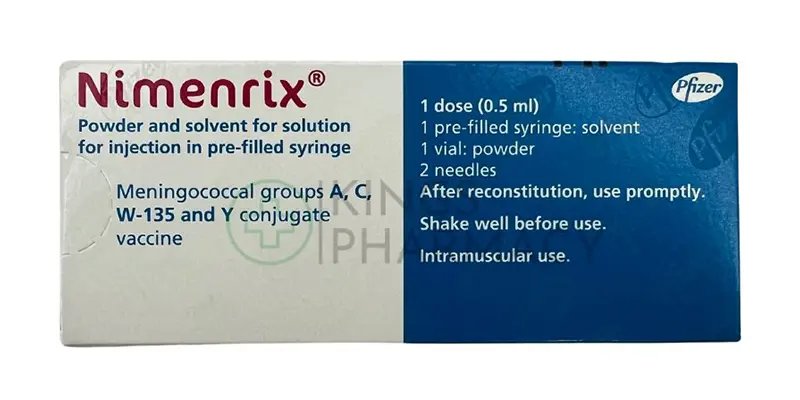Typhoid Vaccination
The typhoid vaccine is an essential preventive measure against typhoid fever, a serious illness caused by the Salmonella Typhi bacteria. It is available in two forms: an injectable vaccine containing inactivated bacteria and an oral vaccine containing live attenuated bacteria. The vaccine is particularly recommended for travelers to regions where typhoid fever is prevalent and for individuals in close contact with infected persons. While generally safe, the vaccine can cause mild side effects such as fever and soreness at the injection site.
Select Quantity
What is Typhoid?
Typhoid fever is a bacterial infection caused by Salmonella typhi. It is typically transmitted through contaminated food or water, often in areas with poor sanitation. The infection can lead to serious complications if left untreated, affecting the digestive system and other organs, and may be life-threatening.
Symptoms of Typhoid
The symptoms of typhoid fever can develop gradually and may include:
- High fever
- Weakness or fatigue
- Abdominal pain
- Headache
- Loss of appetite
- Constipation or diarrhoea In severe cases, untreated typhoid can cause intestinal bleeding, perforation, or shock.
Who Should Consider the Typhoid Vaccine?
The typhoid vaccine is recommended for individuals who are traveling to areas where typhoid fever is common, including parts of Asia, Africa, and Latin America. It is especially important for travelers who will be staying in rural areas or eating food from street vendors, where sanitation may be inadequate. People who work in healthcare or laboratories where exposure to Salmonella typhi is possible may also be advised to get vaccinated.
How Is the Typhoid Vaccine Administered?
There are two types of typhoid vaccines:
- Injectable vaccine: A single dose is given as an injection into the muscle, usually 2 weeks before travel.
- Oral vaccine: A series of four doses are taken over a week, with the last dose completed at least 1 week before travel. The oral vaccine is taken in capsule form, with each dose spaced out over a few days.
Both vaccines provide protection for up to 2 years, after which a booster dose may be necessary for continued protection.
Effectiveness of the Typhoid Vaccine
The typhoid vaccine is effective at reducing the risk of contracting typhoid fever, although no vaccine offers 100% protection. The injectable vaccine provides about 70-80% protection, while the oral vaccine offers about 50-75% protection. The vaccine is not a substitute for other preventive measures, such as drinking safe water, eating thoroughly cooked food, and practicing good hygiene.
Side Effects of the Typhoid Vaccine
The typhoid vaccine is generally safe with few side effects. Common side effects include:
- Pain, redness, or swelling at the injection site (for the injectable vaccine)
- Fever or mild gastrointestinal discomfort (for the oral vaccine) These side effects are usually mild and resolve within a few days. Serious side effects are rare but can include allergic reactions. If you experience severe symptoms, seek medical attention immediately.
When Should You Get the Typhoid Vaccine?
Ideally, the typhoid vaccine should be administered at least 1-2 weeks before traveling to an area with a high risk of typhoid. This allows enough time for the vaccine to provide protection. If you are already traveling, speak with a healthcare provider to determine if a vaccine is still appropriate or if other preventive measures are needed.
Additional Preventive Measures
While the typhoid vaccine is an important tool, it should be combined with other precautions to reduce the risk of infection:
- Drink only bottled or boiled water
- Avoid ice or unpasteurized dairy products
- Eat food that has been thoroughly cooked and is served hot
- Wash hands frequently with soap and water, or use hand sanitizers
- Avoid eating raw fruits and vegetables unless you can peel them yourself
What is the typhoid vaccine?
The typhoid vaccine is a preventive measure against typhoid fever, a serious infection caused by the bacterium Salmonella Typhi. It helps protect individuals traveling to or living in areas where typhoid fever is common.
Who should receive the typhoid vaccine?
The vaccine is recommended for individuals traveling to or living in areas with a high risk of typhoid fever, such as parts of Africa, Asia, and Latin America. It is also advised for those working in or visiting these regions for extended periods or engaging in activities that increase their risk of infection.
How is the typhoid vaccine administered?
The typhoid vaccine is available in two forms:
- Injectable vaccine: Given as a single dose administered intramuscularly.
- Oral vaccine: Administered as a series of four capsules taken on alternate days.
How effective is the typhoid vaccine?
Both the injectable and oral vaccines offer substantial protection against typhoid fever, though neither provides 100% immunity. The injectable vaccine typically provides protection for about 2 years, while the oral vaccine offers protection for approximately 5 years.
Are there any side effects associated with the typhoid vaccine?
Common side effects of the injectable vaccine include mild pain or swelling at the injection site, while the oral vaccine may cause mild gastrointestinal discomfort. Serious side effects are rare, but it is important to consult a healthcare provider if you experience severe reactions or allergic symptoms.
How long before travel should I get vaccinated?
It is recommended to receive the typhoid vaccine at least 1 to 2 weeks before traveling to allow your body to develop immunity.
Are there any specific guidelines for the vaccine in children?
Yes, the vaccine is generally safe for children over 2 years of age. The specific type and dosage may vary based on age and health status, so consult with a healthcare provider for personalized advice.
Do I need a booster dose?
Booster doses may be required depending on the type of vaccine and your continued risk of exposure. For the injectable vaccine, a booster is typically needed every 2 years if you remain at high risk. For the oral vaccine, a booster may be recommended every 5 years.





